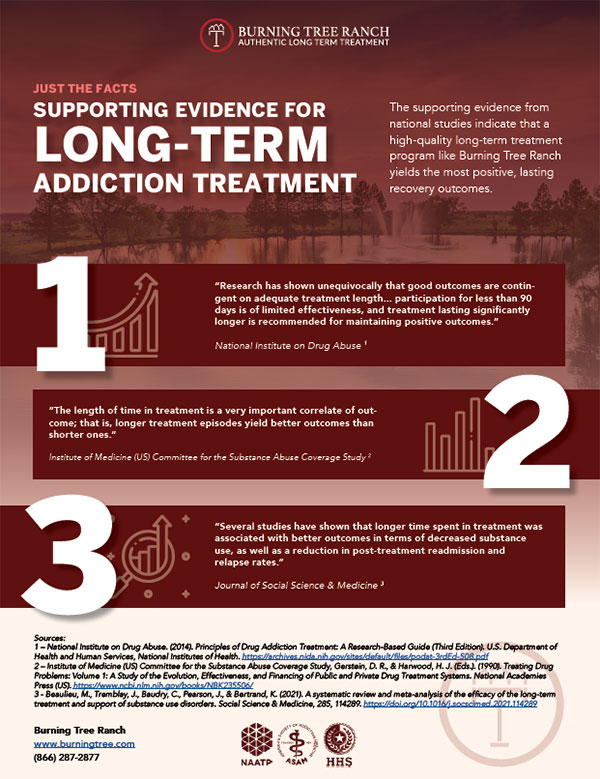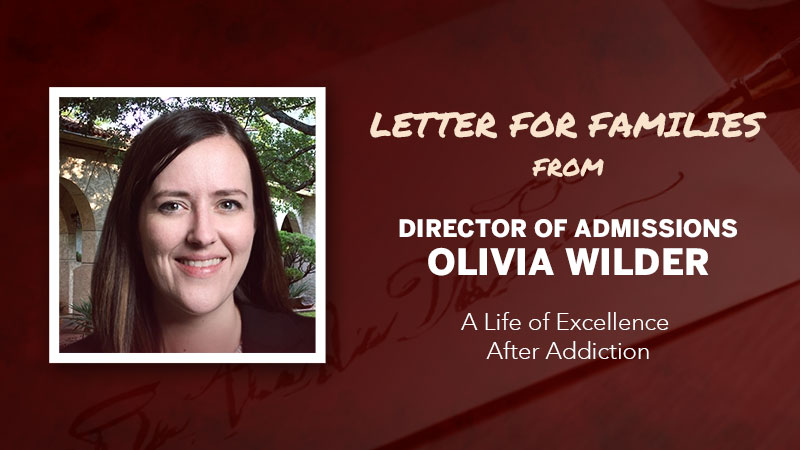What To Expect From Burning Tree
Our Promise: Deliver Life-Changing Clinical Interventions from the Painful Cycle of Chronic Relapse
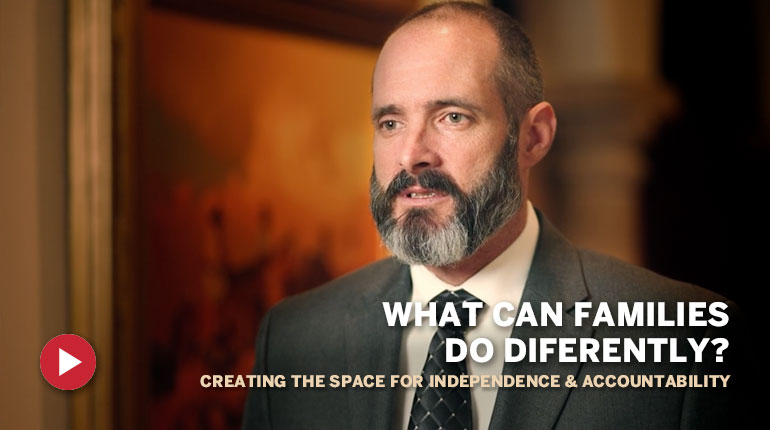
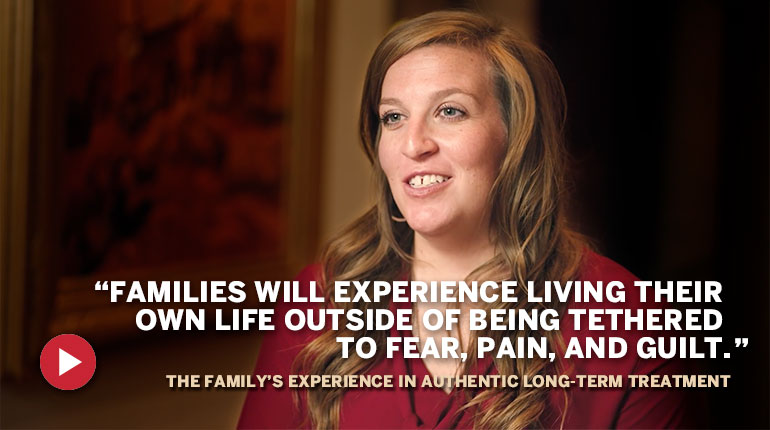
What Makes Burning Tree Different from Other Treatment Programs?
Burning Tree is the Nation’s only authentic long-term treatment provider specializing in the treatment of chronic relapse.
We address life and death matters as they relate to chronic addiction and mental health.
- 100% Progress-Based
- Exclusive To Chronic Relapse Clients
- Life Skills Intensive, Accountability Driven
- Emphasis On Behavioral & Attitudinal Well-Being
- Long-Term, Multi-Phase Continuum Of Care
Our Commitment: Delivering Life-Changing Clinical Interventions
At Burning Tree Ranch, we promise to deliver life-changing clinical interventions to those who have been unable to find freedom from the unending cycle of relapse.
The work we do is complex and time-consuming. It is also lasting.
We ask our families to trust us, to take our hand, and to allow us to guide them away from the path they’ve been traveling for years.
- Our mission is to help the chronic relapser create a life of excellence beyond sobriety.
- Our promise to families is to deliver life-changing clinical interventions to those who have been unable to find freedom from the cycle of chronic relapse.
- Our promise to clients is to invest completely in their recovery to help them uplift all areas of their lives: physically, mentally, emotionally, and spiritually.
What Does it Mean to Undergo Long-Term Treatment?
- Focus On Identifying Complex Emotional And Mental Health Disorders
- Emphasis On Treating Advanced Stages of Addiction And Relapse
- Multi-Phased Long-Term Continuum Aimed At Permanent Recovery
- Concentration On Dynamic Behavioral, Attitudinal, and Personality Change
- Treatment Duration Informed By Measurable, Provable Progress - Not Time

“We are here to help you and your family transition from a place of worry to hope. We want to help you find the best path forward and reduce as much stress as possible during this difficult time.”
Olivia Wilder, Admissions Director
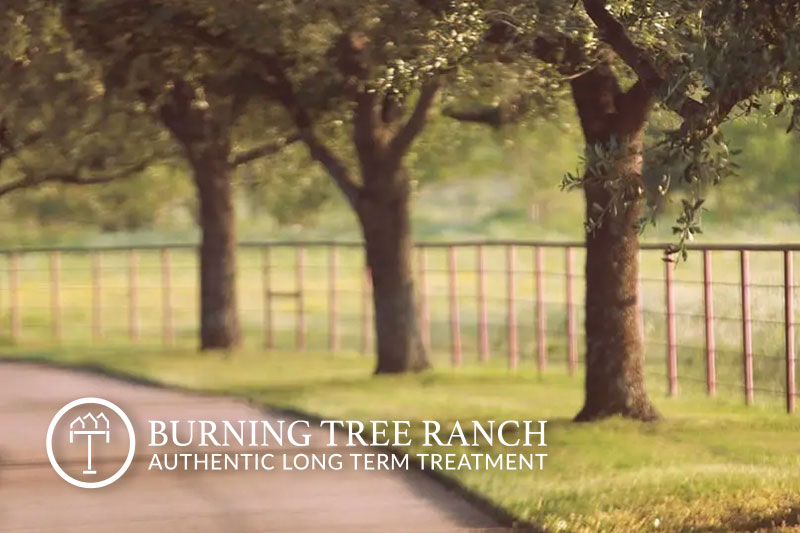
Intensive Residential Programming
Clients are immersed in our progress-based clinical environment’s structure, routine, and disciplines for chronic relapse. Everything in Phase 1 is designed to support the client in sobriety outside of treatment.
- Location: Kaufman, TX
- Emphasis: To establish the foundation for permanent recovery outside of treatment.
What to Expect in Phase 1
- To engage in regular neurofeedback, counseling, and psychiatry sessions
- To participate in evening, weekend, and other scheduled outings & activities
- To be challenged towards a deeper relationship with new and effective behaviors
- To establish a foundation for renewed trust with family and loved ones
Supportive Residential Programming
Clients engage in a combination of continued residential treatment with overnight weekend passes to our aftercare programming & transitional living. This phase is designed to evaluate readiness for a full transition into aftercare.
- Location: Kaufman & Dallas, TX
- Emphasis: To establish the client’s preparedness to take on more responsibility in early sobriety.
What to Expect in Phase 2
- To resume cell phone use
- To be allowed access to a vehicle
- To engage in overnight passes to our transitional living
- To start attending aftercare groups in Dallas
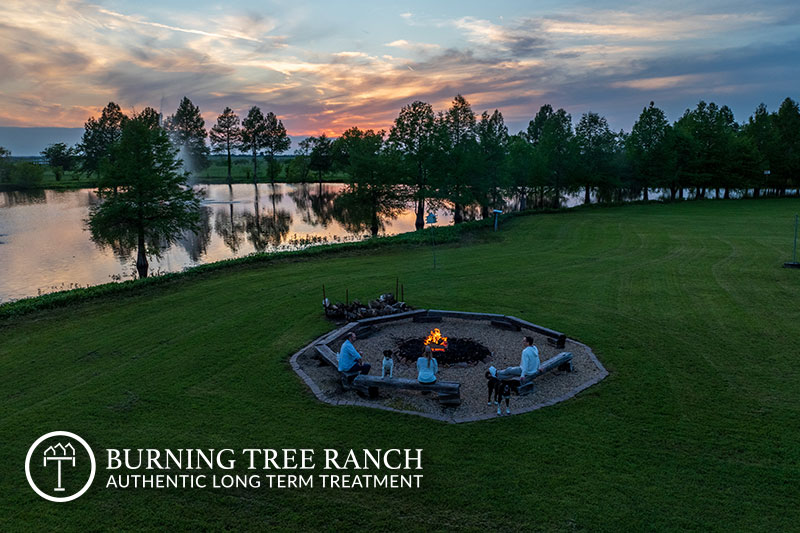
Tailored Aftercare & Supportive Living
Clients reside in our gender-specific supportive housing while attending aftercare, gaining employment, continuing case management, participating in the AA community, making amends, and pursuing deeper engagements with the recovery community.
- Location: Dallas, TX
- Emphasis: For the client to become fully self-supporting while growing in sobriety, responsibility, & self awareness.
What to Expect in Phase 3
- To begin full-time employment
- To live in our gender-specific transitional living
- To attend aftercare and case management sessions weekly
- To embrace accountability for all aspects of daily living
Tailored Aftercare & Independent Living
Clients become eligible for independent living with an approved sober peer while continuing their aftercare commitment, growing in their recovery disciplines, and maintaining consistent, self-supporting employment.
- Location: Dallas, TX
- Emphasis: Preparing for complete independence financially, emotionally, & spiritually.
The Journey Begins
Clients graduate the entire Burning Tree continuum of care with a strong foundation of sobriety, a comprehensive set of life skills, and a renewed purpose in life.
What to Expect in Phase 4
- To move into independent living with a sober peer
- To continue attending case management and aftercare groups
- To become totally or nearly self-supporting
- To initiate the transition to complete, self-sustained independence
We Treat Difficult and Advanced Stages of Chronic Addiction
Burning Tree specializes in helping individuals who have experienced chronic relapse and have struggled to maintain sobriety despite multiple treatment attempts.
Our program is long-term, progress-based, and highly intensive. It’s uniquely designed to address the challenges faced by those with advanced stages of addiction, providing the comprehensive care and support needed for lasting recovery.

“Time gives us the ability to treat all of the mental health components that are active, for all of the addicts and alcoholics that we treat.”
Meghan Bohlman, LPC, LCDC, Clinical Director
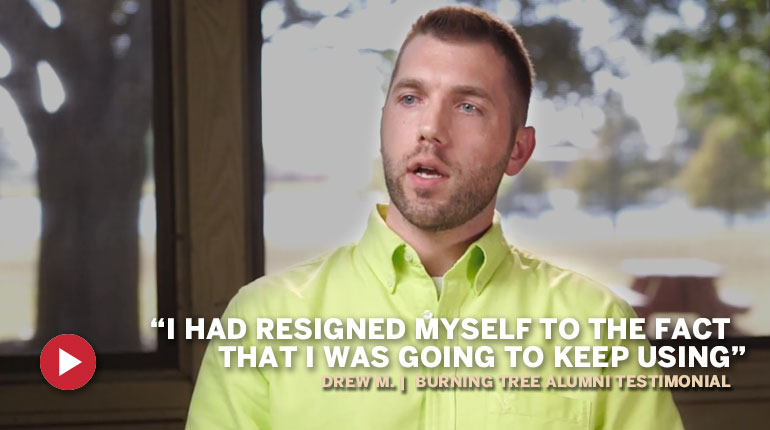
We Specialize in the Treatment of Underlying Mental Health Conditions
Dual diagnosis generally refers to the existence of multiple mental health conditions in an individual. Such a diagnosis may also include substance use disorder or a related chemical dependency. At Burning Tree Ranch, we specialize in correctly identifying and treating all kinds of dual diagnosis.
- Personality Disorders Learn more about personality disorders & the relationship with substance abuse.
- Anxiety Disorders Generalized anxiety disorder & phobias are highly prevalent in dual diagnosis.
- Feeding & Eating Disorders Eating disorders like binge eating bulimia may coincide with substance abuse issues.
- Sleep-Wake Disorders Sleep disorders like insomnia may contribute to self-medicating with substances.
- Trauma & Stressor-Related Disorders PTSD & acute stress disorders frequently co-occur with addiction.
- Obsessive-Compulsive & Related Disorders Learn more about OCD & related disorders co-occuring with substance use.
- Neurodevelopmental Disorders Learn about how ADHD & similar disorders can increase the risk for substance abuse.
- Bipolar & Related Disorders Bipolar disorders include manic episodes where substance abuse is more common.
- Depressive Disorders Alcohol & substances are commonly used to self-medicate for depressive symptoms.
- Learn More Read more about how we treat dual diagnosis conditions together with substance abuse.
Understanding Addiction as a Family Disease
Addiction wreaks havoc upon families emotionally, financially, and physically. In many cases, it destroys families entirely.
It is an uncomfortable reality to be repeatedly confronted with relapse, dashed hopes, and ever-worsening consequences. It can also be painful for the family to change its response to the addicted loved one’s behaviors, crises, and misadventures.
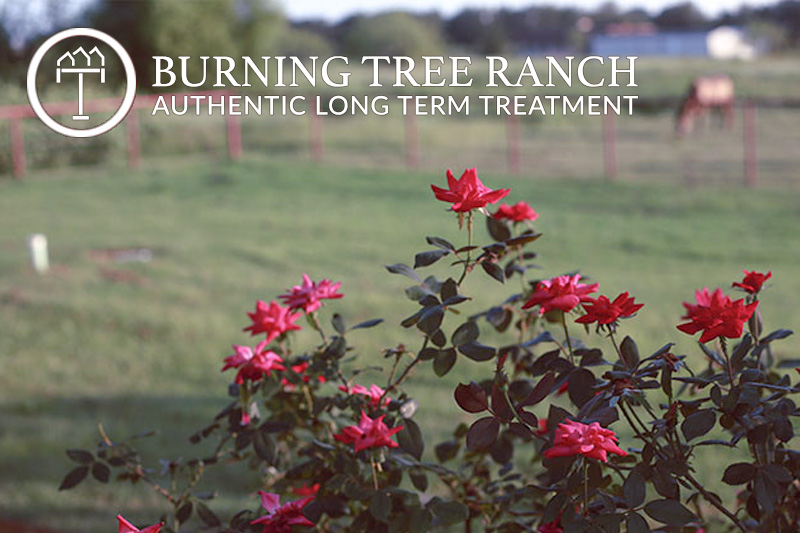
By treating addiction as a family disease, we create opportunities for healing, growth, and transformation that extend beyond the individual in treatment.

“We want our families to come to the Family Program to help themselves, not to help their loved one.”
David Elliott, Founder & President
What Do Burning Tree Families Say?
We know the Burning Tree program is effective for complex, advanced cases of addiction. We also know what we’re asking families to undertake is far from simple or easy.
The transformative results of the Burning Tree experience are best illustrated through the stories of our families who have undergone the journey firsthand.
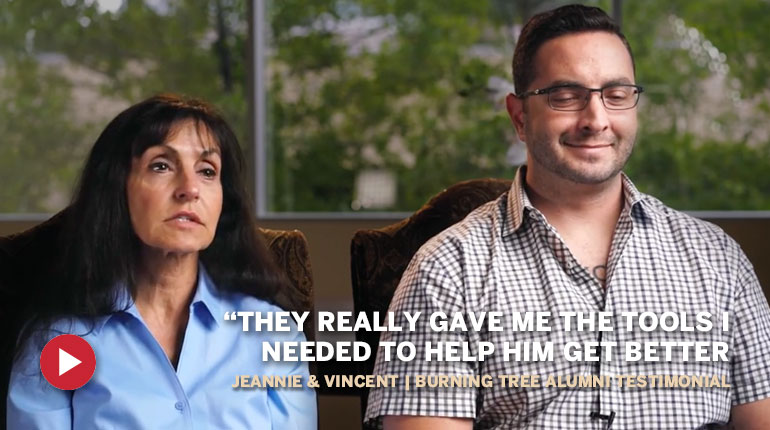
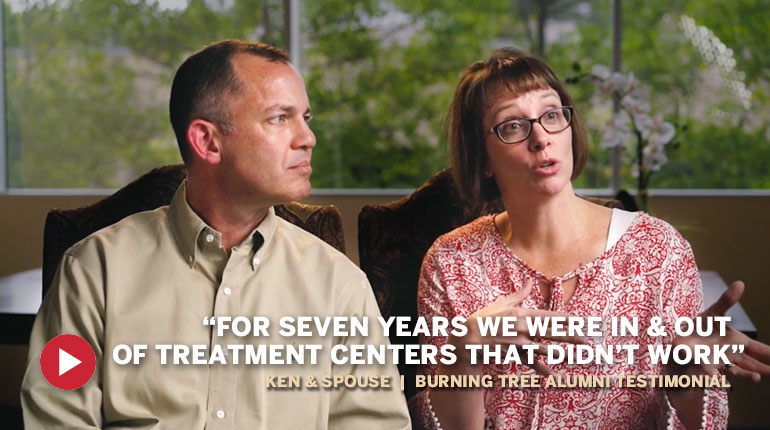
What Can Families Expect From Their Loved Ones After Burning Tree Ranch?
Our families come to us skeptical and uncertain – even hopeless. Upon completion of the program, here’s what to expect from a Burning Tree Graduate’s Family:
- Renewed Trust A rebuilt sense of trust in their loved one and the recovery process, grounded in the tangible progress they've witnessed.
- Commitment to Ongoing Support A dedication to maintaining the supportive structures and practices that have facilitated their loved one’s sobriety and overall well-being.
- Appreciation for the Present An increased ability to live in the moment, valuing the time spent together and the peace that comes with recovery.
- Optimism for the Future A hopeful outlook towards the future, believing in the possibilities that sobriety can bring to their loved one and the family.
- Adaptability and Resilience A newfound resilience and adaptability, equipped to face life's uncertainties with strength and grace, thanks to their shared journey through recovery.
Feel unattainable? Burning Tree clients undergo a long process of transformation. Our families do, too.
Long-Term Treatment is Strongly Supported by Evidence
The supporting evidence from national studies indicate that a high-quality long-term treatment program like Burning Tree Ranch yields the most positive, lasting recovery outcomes. The more time individuals spend in a professional treatment setting, the more likely they are to achieve permanent, long-term sobriety.
What Defines a Burning Tree Program Graduate?
Our clients engage in a highly customized, life-altering treatment program tailored to the individual. While the goal is permanent sobriety, the mission is so much more.
- Leads a Self-Supporting, Financially Independent Lifestyle
- Remains Accountable to Self, Peers, & Family
- Speaks Transparently & Listens Actively
- Demonstrates Patience & Composure
- Responds to Stressors Practically
- Prioritizes Integrity & Embraces Sobriety
Seem too good to be true? Burning Tree is a long-term specialty program that focuses exclusively on the complex needs of chronic relapsers. In fact, that’s all we do.
How Do I Know If My Loved One is a Fit for Burning Tree Ranch?
Creating a Life of Excellence in an Authentic Long-Term Recovery Setting
For our clients and alumni, recovery is about more than simply abstaining from drugs or alcohol; it’s about achieving a sense of fulfillment, improving mental, emotional, and spiritual well-being, and developing a solid foundation for lifelong sobriety.
This is our promise: to deliver life-changing clinical interventions to those suffering from the painful cycle of chronic relapse.

READ OUR LETTERS FOR FAMILIES
Read The First-Hand Account The Burning Tree Recovery Journey
My name is Olivia, and I’m a proud alumna of Burning Tree Ranch.
This is the story of my many failed treatment attempts and the change that happened when my family turned to Burning Tree.
Letter from Our Clinical Director Meghan Bohlman
Dear Families, I often meet you after the whirlwind that ends with your loved one arriving at Burning Tree Ranch. It’s at this time that our treatment team will begin construction of something new with you.
Letter for Families from the Mother of an Alumnus
When I started this letter for Burning Tree families, I thought about what I would have wanted to hear when I was at the point you are at now.
Letter for Families from the Spouse of an Alumnus
I once heard a speaker talk about sitting in front of the ocean and trying to stop the waves from crashing on the shore – that this is what powerlessness felt like.
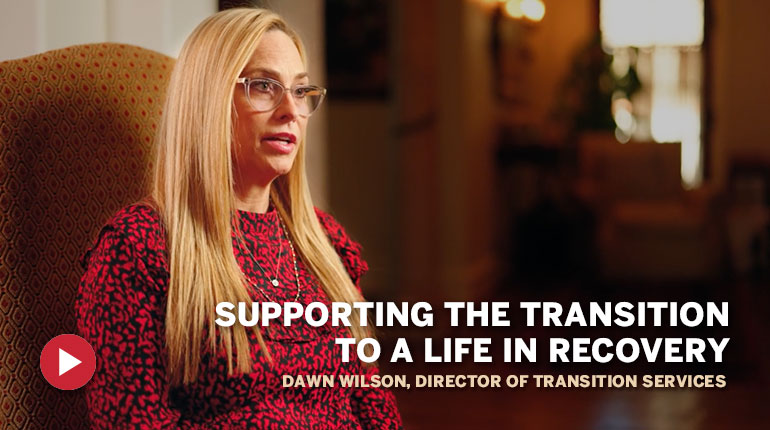
Aftercare & Life After Burning Tree Ranch
Our aftercare program is designed to help clients merge their newfound sobriety with the demands and challenges of everyday life. We recognize that transitioning from the structured, supportive residential treatment environment to the real world can be daunting, so we work closely with families to facilitate long-term aftercare.
Frequently Asked Questions For Burning Tree
We’ve worked intimately with families through some of the most difficult, stressful periods of their lives. Here, you’ll find answers to some of the questions we get asked a lot. If you can’t find the answers you’re looking for, please contact our admissions team for assistance.
As a progress-based treatment center, Burning Tree Ranch measures clinical benchmarks, not calendar days. If the patient has not reached the expected therapeutic milestones, treatment completion becomes an open-ended process, and the patient does not move forward until ready.
Burning Tree Ranch is designed exclusively for the chronic relapser. Clients must have attended at least one former treatment episode to qualify for Burning Tree Ranch.
Dual Diagnosis means more than one diagnosis. All Burning Tree Ranch clients will be evaluated, assessed, and treated for co-occurring mental health disorders as well as addiction. That said, addiction is the primary ailment of the Burning Tree Ranch client.
Burning Tree Ranch treats chronic addiction and treatment-resistant clients that have failed to achieve permanent sobriety in former, shorter-term treatment settings.
The vast majority of Burning Tree Ranch clients are referred to us by the professional community. In most cases, these organizations and private professionals have direct experience working with Burning Tree Ranch on cases where chronic relapse is concerned.
Burning Tree Ranch has been serving the needs of the chronic relapser since 1999.
Burning Tree Ranch does not accept insurance. The Ranch is an affordable private pay solution for the chronic relapser and their family.
Burning Tree Ranch is a non-smoking, tobacco and nicotine-free facility. Medically prescribed nicotine cessation is provided.
Yes.
There are no electronics permitted at Burning Tree Ranch, including cell phones, laptops or any other devices that may connect to the internet.
Yes. Burning Tree Ranch clients will regularly see our psychiatrist on an as-needed basis. Addiction Medicine is an important part of the treatment plan at Burning Tree Ranch.
Burning Tree Ranch is the only authentic, long-term chronic relapse program in the nation. We are different because we track progress, not time.
Featured In Top Publications













